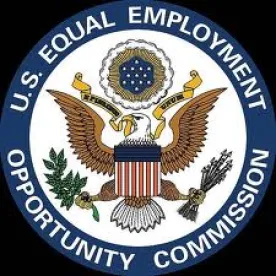On February 22, 2019, the U.S. Equal Employment Opportunity Commission (EEOC) issued a notice of proposed rulemaking (NPRM) to update and amend procedural regulations to fully digitize the EEOC’s charge processing and records systems, clarify the meaning and significance of a “no cause” determination, and delegate the issuance of dismissals to lower-level EEOC employees. This NPRM triggered a 60-day public review and comment period. If the proposed rule becomes final, it could result in increased charge activity and subsequent litigation.
Fully Digitizing the EEOC’s Filing System
Perhaps the most significant proposal is to fully digitize the charge processing and records system. This would permit charging parties and respondents to submit documents, receive notices, and communicate with the EEOC in real time, presumably expediting charge administration. The easier those communications become, the more likely charging parties are to pursue potential claims.
Clarifying and Delegating the “Dismissal and Notice of Rights”
The NPRM includes two key proposals regarding “no cause” determinations.
First, the EEOC proposes to amend the regulations regarding the Dismissal and Notice of Rights, and the form itself, to more clearly communicate that a “no cause” determination is not a determination on the merits. Although the form is not a part of the regulations, the NPRM invites comments on the proposed revisions to the EEOC’s Dismissal and Notice of Rights form, which would be amended to state, among other things, that it “does not certify that the respondent is in compliance with the statutes” and that the “EEOC makes no finding as to the merits of any issues that might be construed as having been raised by this charge.” These revisions should minimize any confusion regarding the EEOC’s position with respect to the merits of a charging party’s claims, perhaps prompting some who would not have otherwise done so to exercise their right to sue.
Second, the EEOC proposes to permit “District, Field, Area, and Local Office Directors to delegate . . . their authority to issue a ‘Dismissal and Notice of Rights’” to other EEOC employees, subject to reconsideration by an office director. This delegation could expedite the issuance of dismissals, which may minimize the likelihood that a charging party loses interest in pursuing a claim with the passage of time.
Miscellaneous Updates
In addition to permitting the digital transmission of documents, correcting some typographical errors, and acknowledging recent legislative enactments such as the ADA Amendments Act of 2008 and the Genetic Information Nondiscrimination Act of 2008, the NPRM proposes to clarify a lingering dispute regarding the applicable limitations periods for certain claims. Under Title VII of the Civil Rights Act of 1964, charging parties have 300 days from the date of discrimination to file their charges with the EEOC or a state or local fair employment practices (FEP) agency. For those jurisdictions without an FEP agency, charging parties have only 180 days.
Complicating matters for charging parties is the rule that where an FEP agency exists but lacks authority to investigate a particular type of charge, a charging party’s statute of limitations is limited to 180 days. According to the current regulation, this occurs when an FEP agency is “without subject matter jurisdiction over a charge.” According to the EEOC, this phrase has prompted some respondents to argue that “even though a charge alleges the same type or basis of discrimination prohibited by state law, such as disability discrimination, it is untimely because the state law would not have applied to the particular circumstances or theory of relief, such as a failure to accommodate theory.” To preclude this argument, the EEOC proposes to revise the jurisdictional language to read “without jurisdiction over the statutory basis alleged in the charge.”
Next Steps
The public comment period regarding the NPRM ends on April 23, 2019. Absent significant edits or revisions, the EEOC could finalize the rule and make it effective as soon as 30 days following its publication.




 />i
/>i

